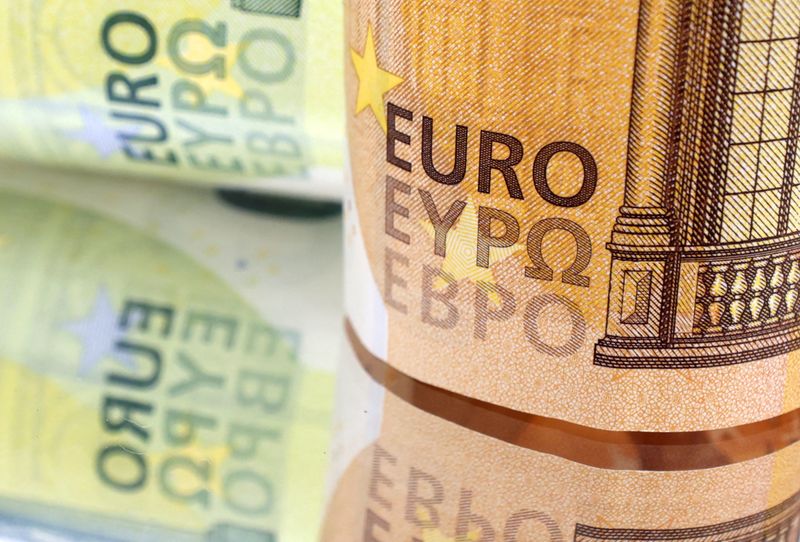By Yoruk Bahceli
(Reuters) - European debt sales have had their fastest start to the year on record as governments and financial institutions take advantage of borrowing costs falling from multi-year highs.
Borrowers raised 170 billion euros ($184 billion) in the first two weeks of 2023 from euro and sterling bond sales, Refinitiv data showed, the highest amount sold over this period on record going back to 2000.
A sharp drop in gas prices, hopes that inflation is peaking and that a recession may be milder than expected have boosted sentiment.
Borrowing costs, notching their biggest jumps on record in 2022, have fallen sharply in January. Germany's 10-year bond yield has dropped nearly 40 basis points, eyeing the biggest monthly drop since July.
Euro investment-grade corporate bond yields are down 30 bps and the cost of insuring sub-investment grade debt exposure touched the lowest since April.
"This huge amount of borrowing happening tells me that the markets are in good shape, and there's very strong demand for fixed income," said Chris Iggo, chief investment officer for core investments at AXA Investment Managers.
Behind the record is a sharp rise in debt sales from financial institutions. Chunky debt sales from lenders such as Santander (BME:SAN) and Societe Generale (OTC:SCGLY) drove issuance of 52 billion euros in the first two weeks of the year, doubling from 2022.
Analysts noted that as banks sell debt more frequently to fund their balance sheets, they have more of an incentive to take advantage of falling yields.
Issuance from companies dropped 33% to 20 billion euros, Refinitiv's data showed.
Companies, raising debt less frequently, may be put off by higher market borrowing costs relative to what they pay on their outstanding debt, analysts said.
Governments and other public sector borrowers raised 69 billion euros from syndicated debt sold directly to end investors, just shy of 2020's record, Refinitiv's data shows.
Portugal, Ireland, Austria and Belgium launched their deals earlier than last year.
"The market was extremely well positioned to receive all of the early supply in 2023," said Maric Post, director at the Belgian debt agency, which saw near record demand for a 10-year bond.
"We knew that our pricing was quite attractive (to investors)," Post added, noting yields are at their highest in years.
Government bonds have seen inflows for the last seven weeks, while corporate investment-grade bonds saw their largest inflow since July 2021 in the week to Wednesday, according to BofA, citing EPFR data.
"Despite this record level of issuance we're still seeing a tightening in spreads. That's quite unusual," said David Arnaud, fund manager at Canada Life Asset Management.
($1 = 0.9246 euros)
